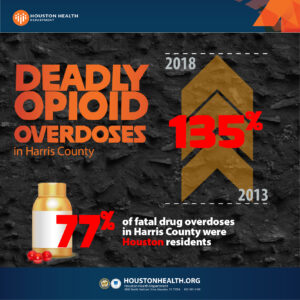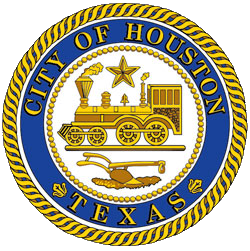HOUSTON – The Houston Health Department is working to address the opioid crisis before it becomes an epidemic in the city. Two recent grants, the first of their kind awarded to the health department, focus on reducing overdose deaths, referring people to treatment, providing education and improving data collection. Addicts looking for treatment can now get it online through RecoveryDelivered.com or go to their local clinic. Whatever option they choose to get help, they will be assisted each step of the way by a trained doctor who is there to help them.
“Although there isn’t currently evidence of an opioid epidemic in Houston, the numbers here are clearly going in the wrong direction,” said Dr. David Persse, Houston’s local health authority and EMS medical director. “The time to act is now and that’s exactly what we’re doing.”
In Harris County, deaths associated with opioid overdoses increased 135% since 2013, with a significant spike since 2016. Approximately 77% of drug overdose deaths in Harris County were Houston residents.
A $2 million FRONTLINES grant from the Substance Abuse and Mental Health Service Administration equips all Houston Fire Department vehicles with naloxone, a lifesaving drug that reverses an opioid overdose. The grant also provides for enhanced training of first responders in recognizing overdoses and administering the lifesaving drug.
The fire and health departments are working with the Houston Recovery Center to link overdose survivors and their families with local hospitals to explore pathways to treatment.
“Saving the life of an overdose victim is the first step in that person’s pathway to treatment,” continued Dr. Persse. “The health department, fire department, Houston Recovery Center and local hospitals are working together to do everything within our power to get victims into treatment, including working directly with their families.”
The health department also received a $200,000 grant through the National Association of County & City Health Officials to improve opioid death data collection and analysis, explore ways to expand capacity for opioid treatment and develop an anti-stigma campaign.
“Opioid addiction does not discriminate and can affect people who’ve never suffered from addiction,” said Dr. Persse. “We have to change the stigma around opioid addiction and embrace those who need help and those looking for it. There is no shame in seeking help.”
In addition to the Houston Recovery Center, Baylor College of Medicine and the University of Texas at San Antonio are partners on the FRONTLINES grant. The New York Department of Health and Mental Hygiene is providing technical assistance with the second grant.
